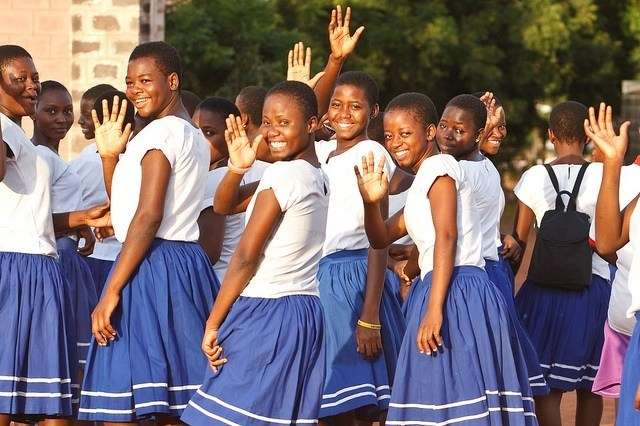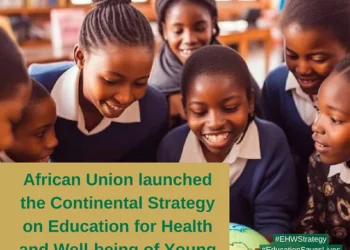The Minority has cautioned the government to listen to the International Monetary Fund (IMF) by providing quality education to students under the free Senior High school programme.
According to the minority, it has observed with keen interest the statement made by the International Monetary Fund regarding the poor implementation and targeting of the Free SHS programme in Ghana. It revealed that since 2017 when the programme was implemented, the minority cautioned government to hasten slowly so that a proper roll out of the policy would be meaningful and beneficial to Ghanaians.
This advice, the minority indicated, was not heeded to but was described as a propaganda.
Contained in a statement signed by the ranking member on parliament’s select Committee on Education, Peter Nortsu-Kotoe, it stated that the minority again in 2019, two years after the implementation of the policy called on the government to review the policy but the request for a review was misconstrued to mean cancelation.
Furthermore, it explained that what the Minority and former President of the Republic, John Dramani Mahama identified for review are exactly what the IMF has identified. It highlighted that these include serious targeting of the vulnerable in the senior high schools that needed support which was done by the NDC government when it introduced the progressively Free SHS in 2015.
“Additionally, the current calendar for the senior high schools must be reviewed because the first year students who reported in February this year and went on holidays during Easter are still home. This is impacting negatively on their academic work. In the end they are unable to do the three years of the secondary school programme.
“It is our belief that this government which claims to be a ‘listening government’ will listen to what the IMF has said and give our future leaders the quality of education that they deserve so that in the next two decades the country does not suffer any human resource challenges.”
Minority in parliament
Inadequate infrastructure in senior high schools
Commenting on infrastructure in senior high schools, the minority explained that it remains a big challenge as a large number of projects started by the President Mahama administration to provide enough space for both accommodation and academic work remains uncompleted.
To this, it highlighted that if government had not abandoned these projects, the infrastructure deficits would have been minimal.
“This was the vision of President Mahama that going into the future, enrolment into secondary schools was going to increase tremendously.”
Minority in Parliament
Furthermore, the minority observed in the report that there is a neglect of basic education. With this, it noted that every year, especially during budget sessions, the neglect of the basic education by the government was going to have a negative impact on the quality of education that it desires for children in the country.
“We have observed the dwindling allocation of funds for basic education but government has been adamant in this direction. The Minority wants to put on record that in the 2020 Manifesto of the NDC, we categorically stated that we would engage and involve the private senior high schools in the Free SHS programme and that remains a commitment the next NDC government will do.”
Minority in Parliament
In a bid to address the challenge within the education sector, the Minority urged the government to as a matter of urgency release money to the heads of Senior High Schools to enable them run their schools efficiently.
It will be recalled that the IMF on May 22, 2023, described government’s flagship Free SHS Senior High School (SHS) programme as poorly targeted. The Fund made this observation in its latest country report on Ghana, whose request for a $3 billion bailout it recently approved.
According to the report, the Free SHS programme “which covers the full cost of secondary education, has helped increase enrollment but is poorly targeted”. The IMF also disclosed that Ghana spends close to 4% of its GDP on education with good results in terms of enrollment but poor learning outcomes.
Key identified areas by the IMF which need potential improvement in education spending include strengthening primary education resources, better teacher training, and stronger performance-based funding practices.
READ ALSO: National Peace Council Calls For Peace Ahead Of Kumawu By-election Today





















